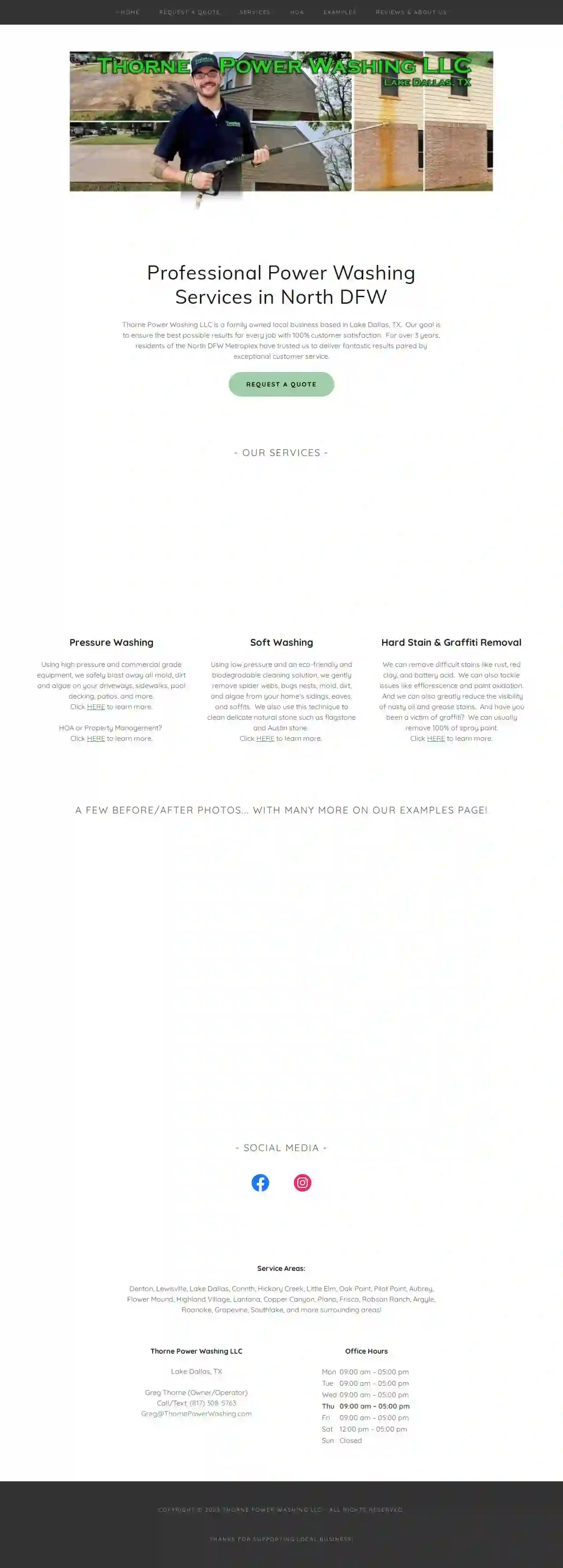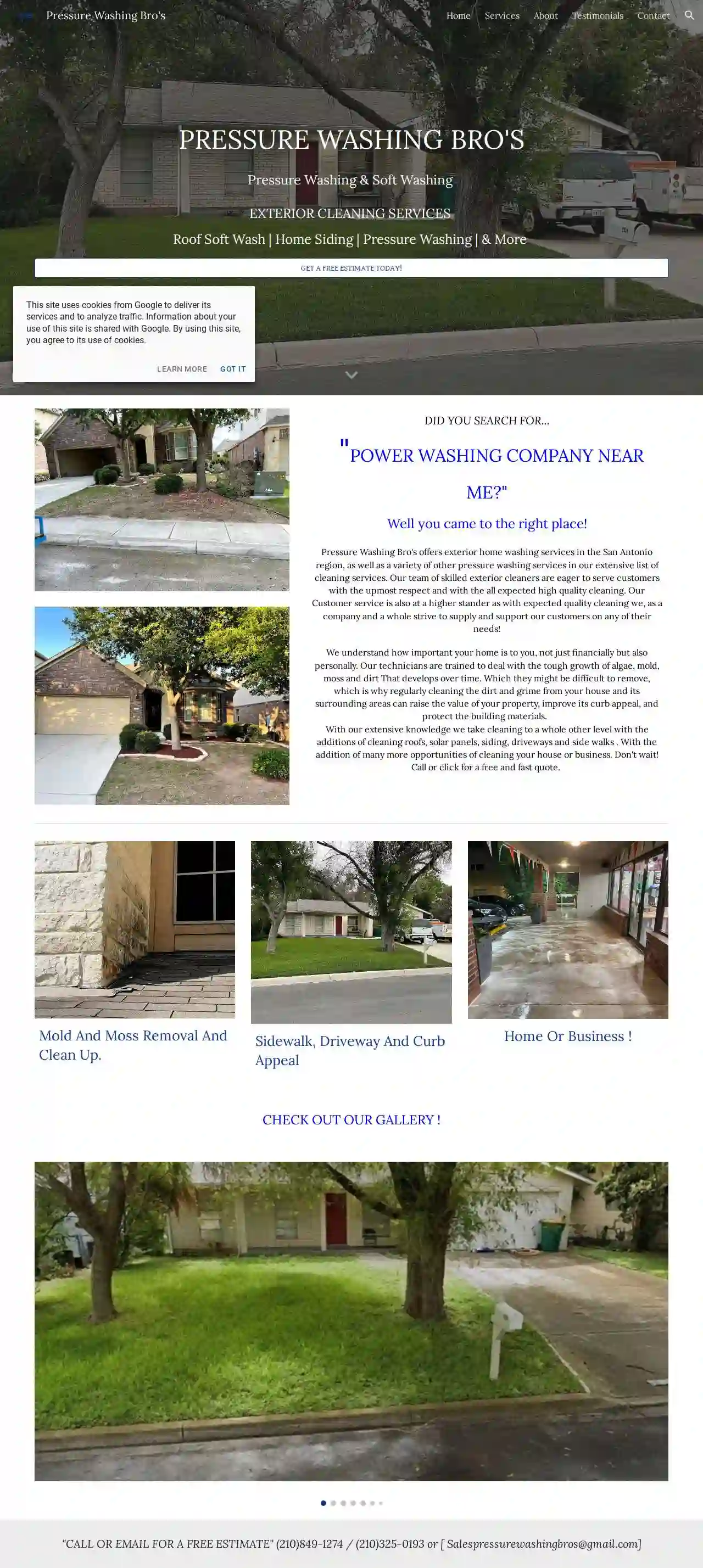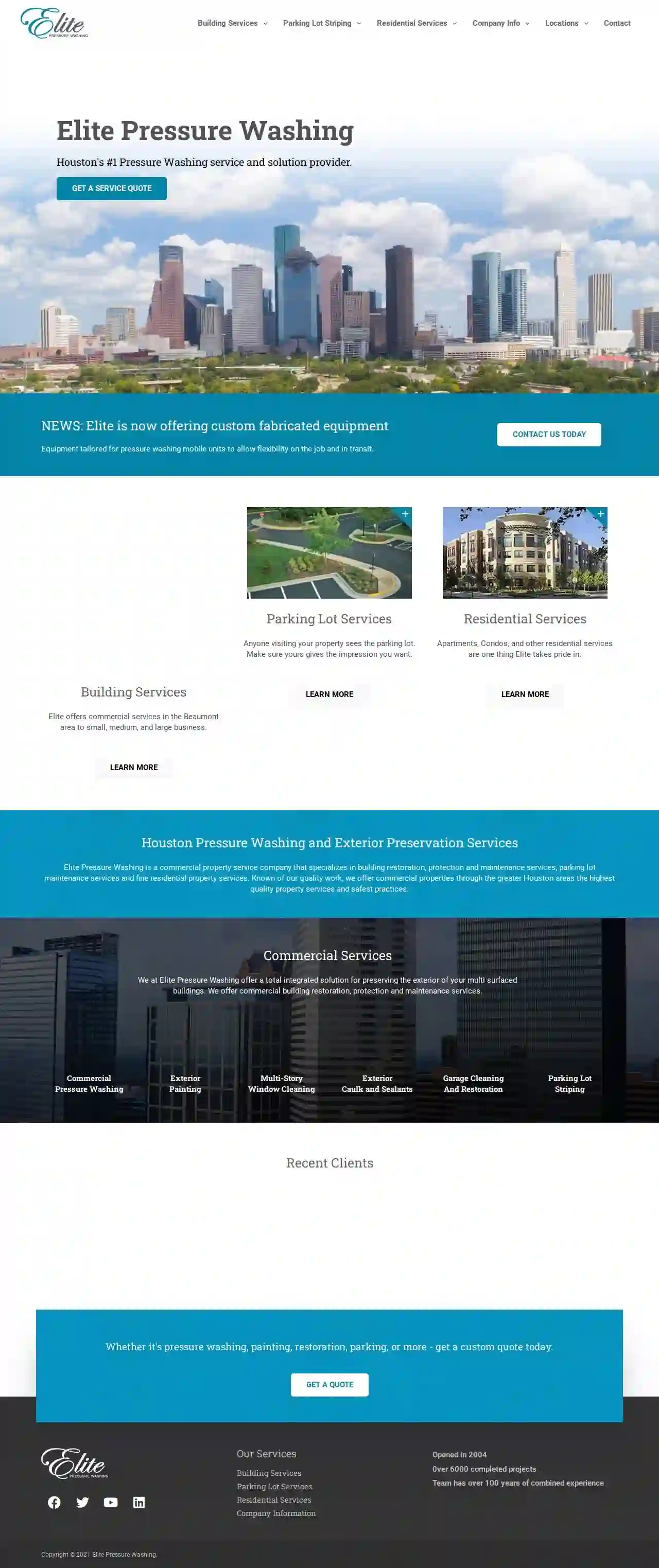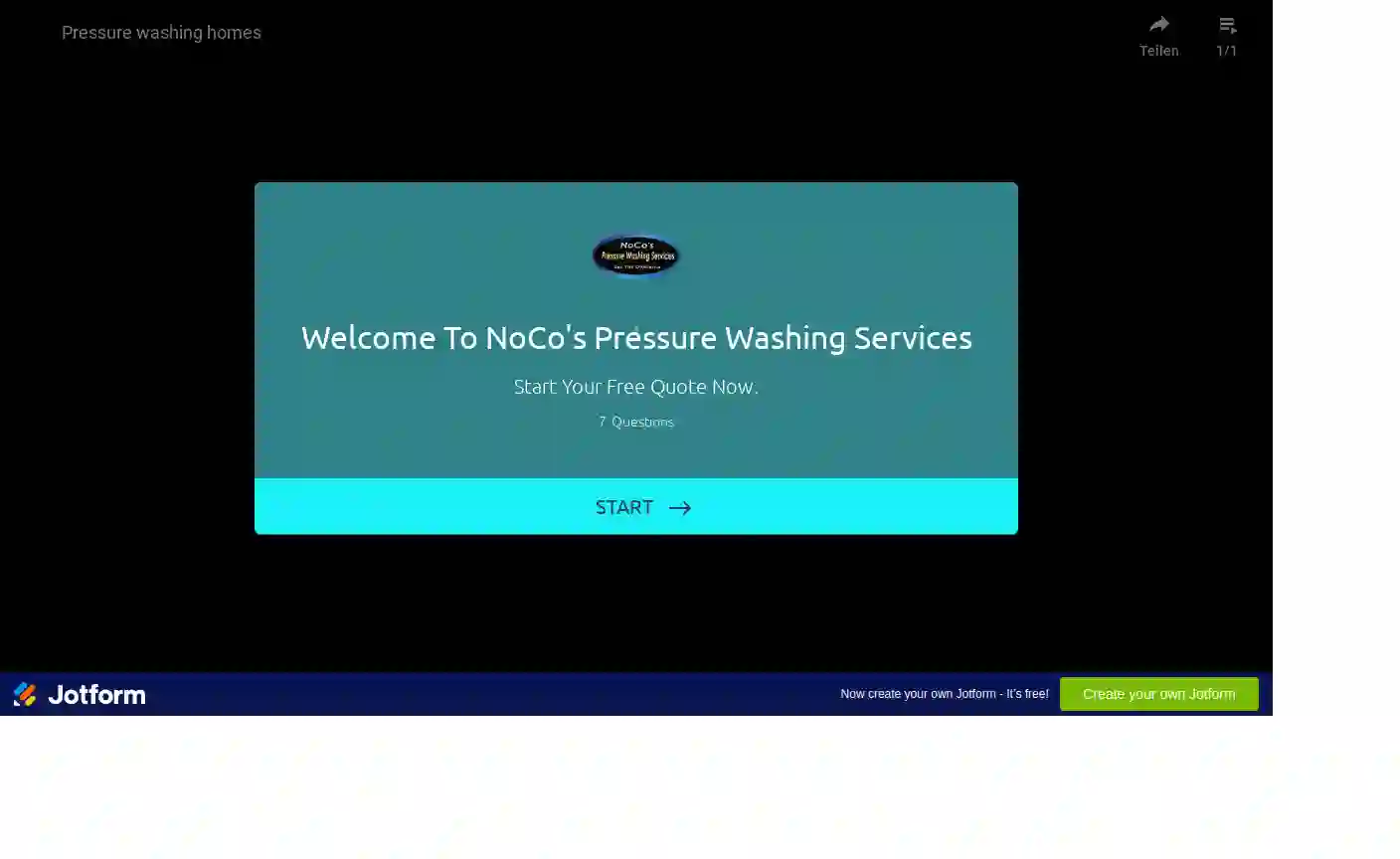Pressure Washing Murphy
Find top Pressure Washing in Murphy
Receive multiple Power Washing quotes for your project today! Compare profiles, reviews, accreditations, portfolio, etc... and choose the best deal.

Conejo Power Wash
4.19 reviewsThousand Oaks, CA, 91360, USConejo Power Wash is your locally owned and operated pressure washing solution serving the Conejo Valley and surrounding areas. We take pride in providing high-quality, eco-friendly pressure washing services for both residential and commercial properties. Our team of well-trained professionals is dedicated to exceeding your expectations and ensuring your complete satisfaction. We offer a wide range of services, including hot and cold water pressure washing, window cleaning, and sealing for brick, stone, and concrete. We are fully insured, including 2 million dollars in general liability insurance, to protect your property. We are committed to using environmentally friendly cleaning products to safeguard your home, business, garden, and pets. Check out our positive reviews on Yelp, Google, and Nextdoor, and our A+ rating with the Better Business Bureau. We serve Thousand Oaks, Westlake Village, Santa Rosa Valley, Newbury Park, Camarillo, Santa Barbara, Oak Park, Agoura Hills, Simi Valley, Moorpark, Ventura, Malibu, and West Los Angeles.
- Services
- Why Us?
- Accreditations
- Our Team
- Gallery
Get Quote
Texas Power Washing
515 reviewsMcKinney, 75070, USWe are Texas Power Wash! Best Pressure Washing service in town! Call 214-809-5529 or Email for a FREE QUOTE Mention this PROMO and get 15% off your first service We are a full-service Pressure Washing company. We Specialize in : Residential and Commercial Pressure Washing, House Washing ,Roof Washing, Driveway cleaning, Parking lot Cleaning, Patios, Stone Cleaning, Oil Stain Removal , Pool Decks and More !! We Service: Frisco, Prosper, Mckinney, Allen, Dallas, Irving, Grapevine, Coppell, Lewisville, Garland, Mesquite, Addison, Dallas, Ft Worth, Colleyville, Southlake, Denton and more All of our Pressure Washing technicians have been industry trained and are able to provide a professional cleaning service whether at a residence or commercial property. We have commercial property insurance and liability insurance. Our goal is to achieve 100% customer service with every service that we provide, and we look forward to hearing from you any time. Our yexperience and dedication to customer satisfaction make us the best pressure washer in the Dallas Texas Area. That is why we know you won’t be disappointed in our power washing and roof cleaning
- Services
- Why Us?
- Testimonials
- Gallery
Get Quote
Your Quality Pressure Washing Katy
529 reviews7027 Camino Verde Drive, Houston, USWelcome to the premier source for excellence in pressure washing Houston! Our dedicated team is committed to providing unparalleled services tailored to meet all your pressure washing needs. At Pressure Washing Houston, we take pride in our expertise and state-of-the-art equipment, ensuring that your residential or commercial properties receive the highest level of cleanliness and revitalization. Explore the transformative power of pressure washing Houston with us – where quality meets precision, and your surfaces are treated with the care they deserve. Welcome to a world of unmatched service and the assurance that your spaces will shine like never before!
- Services
- Why Us?
- Our Team
- Testimonials
- Gallery
Get Quote
Thorne Power Washing LLC
539 reviewsLake Dallas, TX, 75065, USThorne Power Washing LLC is a family owned local business based in Lake Dallas, TX. Our goal is to ensure the best possible results for every job with 100% customer satisfaction. For over 3 years, residents of the North DFW Metroplex have trusted us to deliver fantastic results paired by exceptional customer service.
- Services
- Why Us?
- Our Team
- Gallery
Get Quote
Pressure Washing Bro's
55 reviewsSan Antonio, USPressure Washing Bro's is your source for a dependable and thorough pressure washer in the San Antonio area! We use only the highest quality pressure washer tools available, because we truly value the end result of your exterior cleaning service. We are here to service all of your residential or commercial pressure washing needs! We are a small business owned and are two brothers just enjoying our time here, trying to make a change for the better. And the better being helping you the customer out bring the shine that once was adhered to your property back. In doing so bring you more curb appeal and in commercial cases more traction to the naked eye of your customers! Trenton J. LeBlanc I am a 24 year old that has nothing but thriving energy, to help and give back to the community! The helping hand I give also helps bring the smiles out of others around me and my self. As growing up there was many things I wanted to do, I have fell into the consensus of working hard and pushing myself to do more ! Jack D. Farmer IV I am a 23 year old who always had a love for helping others and thriving compasion to be the best at what I do. I've been involved in helping my local community in any way possible ever since high school. I've had a strong work ethic since i started in the workforce and am always finding new ways to push myself further.
- Services
- Why Us?
- Our Team
- Testimonials
- Gallery
Get Quote
EZ Pressure Washing
54 reviewsSpringfield, MO, 123 Main St, 65804, USWelcome to EZ Window Washing, your go-to team for pristine and spotless windows in Springfield, MO and Tulsa, OK. With our high-quality cleaning services, we guarantee to transform your dull and dirty windows into sparkling panes that let in the natural light. Our team utilizes the latest equipment and eco-friendly cleaning solutions to ensure a streak-free and long-lasting shine. Whether you need residential or commercial window cleaning, solar panel cleaning, dryer vent cleaning, or any of our other services, we are committed to delivering exceptional results tailored to your specific needs. Give us a call today for a free estimate.
- Services
- Why Us?
- Accreditations
- Our Team
- Testimonials
- Gallery
Get Quote
Surface Pressure Power Washing
51 reviews11111, Houston, 77084, USSurface Pressure Power Washing is a locally owned and operated business serving the greater Houston area. We are dedicated to providing high-quality power washing services for both residential and commercial properties. Our team of experienced professionals utilizes the latest equipment and techniques to ensure that your surfaces are cleaned thoroughly and safely. We offer a wide range of services, including house washing, driveway washing, deck washing, fence washing, and more. We are committed to exceeding your expectations and providing you with a sparkling clean exterior.
- Services
- Why Us?
Get Quote
Pressure Washing Solutions
4.947 reviewsEdinburg, TX, 78542, USPressure Washing Solutions is a professional contractor offering exterior cleaning and pressure washing services to help remove years of grit, grime, and grease quickly, affordably, and safely. We are dedicated to helping our clients with all sizes of exterior cleaning projects and a variety of pressure washing services. From boats and RVs to fleet and commercial building complex washing projects, Pressure Washing Solutions is ready for all types of pressure washing needs in the EDINBURG, TX area. Our team is supplied with the skills and equipment to complete your cleaning projects safely, efficiently, on-time, and on-budget. We are proud to bring our industry experience to each and every job we do. Whether you're looking to clean up the boat or RV, finish a minor clean-up job to restore curb appeal, or prepping for a major project, our knowledgeable team has the skills and tools to make sure the job is done right. Our team is large enough to deliver professional exterior cleaning solutions while offering the personal touches that ensure we meet your goals and exceed your expectations.
- Services
- Why Us?
- Accreditations
- Gallery
Get Quote
Elite Pressure Washing
52 reviewsHouston, USElite Pressure Washing is a commercial property service company that specializes in building restoration, protection and maintenance services, parking lot maintenance services and fine residential property services. Known for our quality work, we offer commercial properties through the greater Houston areas the highest quality property services and safest practices. We opened in 2004 and have completed over 6000 projects. Our team has over 100 years of combined experience.
- Services
- Why Us?
- Gallery
Get Quote
NoCo's Pressure Washing Services
57 reviewsSuite 100, 123 Main St, Cityville, 12345, USWelcome to NoCo's Pressure Washing Services, where we provide a variety of cleaning services including building exterior cleaning, oil removal, parking lot cleaning, and more. Our team is dedicated to providing top-notch service to our clients.
- Services
- Why Us?
- Accreditations
- Our Team
- Testimonials
- Gallery
Get Quote
Over 60,241+ Janitorial Businesses in our network
Our cleaning pros operate in Murphy & surrounding areas!
CleaningMatch has curated and vetted Top Janitorial Companies near Murphy. Find the most trustworthy business today.
Frequently Asked Questions About Pressure Washing
- 0-degree Nozzle: Produces a highly concentrated, powerful jet of water for removing stubborn stains or stripping paint. Use with caution as it can damage surfaces easily.
- 15-degree Nozzle: A versatile nozzle for cleaning concrete, brick, and other hard surfaces. Provides a good balance of pressure and coverage.
- 25-degree Nozzle: A wider spray pattern for cleaning delicate surfaces like siding or fences.
- 40-degree Nozzle: A very wide spray pattern, ideal for rinsing or applying cleaning solutions.
- Soap Nozzle: A low-pressure nozzle designed specifically for applying cleaning solutions.
- Rotary Nozzle: Also known as a turbo nozzle, it produces a rotating, high-impact spray for tackling tough stains and grime.
- Clear Obstructions: Remove any objects, furniture, or debris from the areas to be pressure washed.
- Close Windows and Doors: Securely close all windows and doors to prevent water or cleaning solutions from entering your home or building.
- Cover Delicate Surfaces: Protect delicate plants, landscaping, or electrical outlets with tarps, plastic sheeting, or painter's tape.
- Inform Your Neighbors: It's a courtesy to inform your neighbors about the scheduled pressure washing, especially if noise or overspray is a concern.
- Communicate Special Instructions: Inform the pressure washing company about any specific areas you want them to focus on or avoid.
- Enhanced Curb Appeal: Pressure washing removes dirt, grime, and stains, instantly revitalizing the appearance of your property and boosting curb appeal.
- Improved Health and Safety: Pressure washing removes mold, mildew, algae, and other contaminants that can pose health risks and create slippery surfaces.
- Increased Property Value: A well-maintained exterior, achieved through regular pressure washing, can increase the value of your property.
- Preventative Maintenance: Pressure washing removes dirt and grime that can deteriorate surfaces over time, extending the lifespan of your driveway, deck, fence, and other exterior features.
- Preparation for Painting or Staining: Pressure washing is an essential step before painting or staining, as it provides a clean and receptive surface for the new coating to adhere to.
- Online Reviews: Check online reviews on platforms like Google, Yelp, and Facebook to gauge customer satisfaction and service quality.
- Experience and Expertise: Look for companies with a proven track record and experience in pressure washing various surfaces.
- Licensing and Insurance: Ensure the company is licensed and insured to protect you from liability in case of accidents or damage.
- Equipment and Techniques: Inquire about the company's equipment and techniques to ensure they use appropriate pressure levels and cleaning solutions for different surfaces.
- Quotes and Pricing: Obtain detailed quotes from multiple pressure washing companies and compare their pricing. Make sure the quotes are transparent, outlining all services and costs.
- Professionalism and Communication: Choose a company that is responsive, provides clear communication, and demonstrates professionalism in its interactions.
What are the different types of pressure washer nozzles?
Choose the appropriate nozzle based on the cleaning task and the type of surface being cleaned. Consult the pressure washer manual or a professional pressure washer for guidance.
How do I prepare my property for pressure washing?
By taking these preparatory steps, you can ensure a safe and efficient pressure washing experience.
What are the benefits of pressure washing?
Whether you're looking to improve your property's appearance, protect its value, or enhance health and safety, pressure washing is a valuable investment.
How do I find a good pressure washing service?
Utilize online directories like CleaningMatch to find and compare qualified pressure washing services in your area.
What are the different types of pressure washer nozzles?
- 0-degree Nozzle: Produces a highly concentrated, powerful jet of water for removing stubborn stains or stripping paint. Use with caution as it can damage surfaces easily.
- 15-degree Nozzle: A versatile nozzle for cleaning concrete, brick, and other hard surfaces. Provides a good balance of pressure and coverage.
- 25-degree Nozzle: A wider spray pattern for cleaning delicate surfaces like siding or fences.
- 40-degree Nozzle: A very wide spray pattern, ideal for rinsing or applying cleaning solutions.
- Soap Nozzle: A low-pressure nozzle designed specifically for applying cleaning solutions.
- Rotary Nozzle: Also known as a turbo nozzle, it produces a rotating, high-impact spray for tackling tough stains and grime.
Choose the appropriate nozzle based on the cleaning task and the type of surface being cleaned. Consult the pressure washer manual or a professional pressure washer for guidance.
How do I prepare my property for pressure washing?
- Clear Obstructions: Remove any objects, furniture, or debris from the areas to be pressure washed.
- Close Windows and Doors: Securely close all windows and doors to prevent water or cleaning solutions from entering your home or building.
- Cover Delicate Surfaces: Protect delicate plants, landscaping, or electrical outlets with tarps, plastic sheeting, or painter's tape.
- Inform Your Neighbors: It's a courtesy to inform your neighbors about the scheduled pressure washing, especially if noise or overspray is a concern.
- Communicate Special Instructions: Inform the pressure washing company about any specific areas you want them to focus on or avoid.
By taking these preparatory steps, you can ensure a safe and efficient pressure washing experience.
What are the benefits of pressure washing?
- Enhanced Curb Appeal: Pressure washing removes dirt, grime, and stains, instantly revitalizing the appearance of your property and boosting curb appeal.
- Improved Health and Safety: Pressure washing removes mold, mildew, algae, and other contaminants that can pose health risks and create slippery surfaces.
- Increased Property Value: A well-maintained exterior, achieved through regular pressure washing, can increase the value of your property.
- Preventative Maintenance: Pressure washing removes dirt and grime that can deteriorate surfaces over time, extending the lifespan of your driveway, deck, fence, and other exterior features.
- Preparation for Painting or Staining: Pressure washing is an essential step before painting or staining, as it provides a clean and receptive surface for the new coating to adhere to.
Whether you're looking to improve your property's appearance, protect its value, or enhance health and safety, pressure washing is a valuable investment.
How do I find a good pressure washing service?
- Online Reviews: Check online reviews on platforms like Google, Yelp, and Facebook to gauge customer satisfaction and service quality.
- Experience and Expertise: Look for companies with a proven track record and experience in pressure washing various surfaces.
- Licensing and Insurance: Ensure the company is licensed and insured to protect you from liability in case of accidents or damage.
- Equipment and Techniques: Inquire about the company's equipment and techniques to ensure they use appropriate pressure levels and cleaning solutions for different surfaces.
- Quotes and Pricing: Obtain detailed quotes from multiple pressure washing companies and compare their pricing. Make sure the quotes are transparent, outlining all services and costs.
- Professionalism and Communication: Choose a company that is responsive, provides clear communication, and demonstrates professionalism in its interactions.
Utilize online directories like CleaningMatch to find and compare qualified pressure washing services in your area.